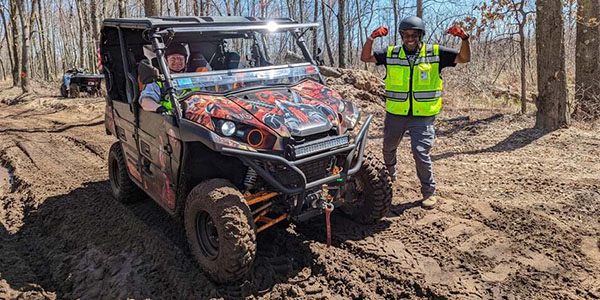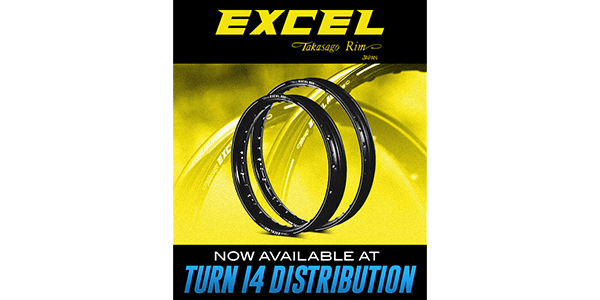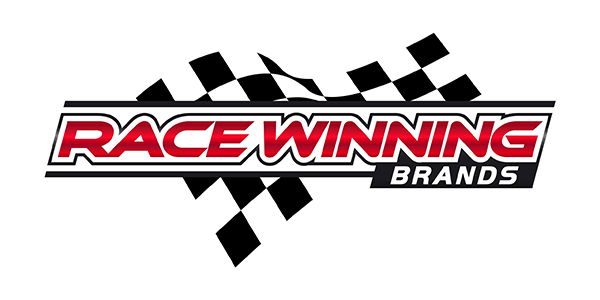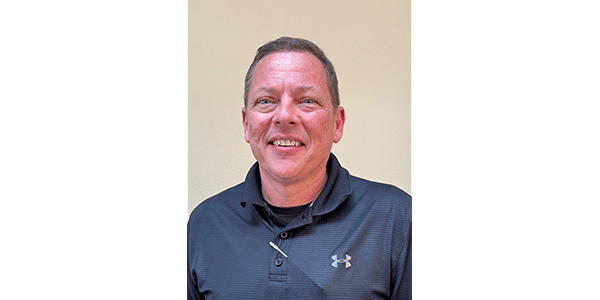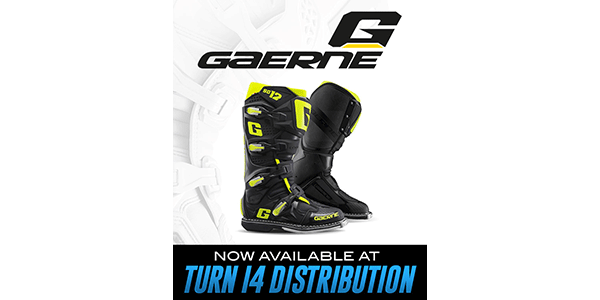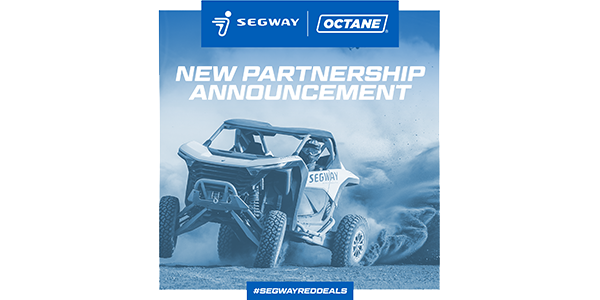Have you ever wondered why people in your dealership don’t do something. Have you ever wondered why you don’t do something about it?
Why don’t the sales guys clean the motorcycles on the showroom floor? Why doesn’t the parts guy check the bin before telling the customer the item isn’t in stock? Why doesn’t the riding gear person offer a more compelling greeting than, "May I help you?" Why doesn’t the service manager call the customer to let them know their motorcycle is ready?
This phenomenon works in the opposite direction as well. Have you ever wondered why you or someone else does something? Why does the salesperson go to the technician to sort out an issue rather than the service manager? Why is one clothing person always the first to fold the T-shirts? Why do your parts people stay at one particular point behind the counter?
If you are interested in improving your performance, or the performance of others, what follows will help.
As we’ve mentioned repeatedly, the human condition is incredibly complex and completely unpredictable. However, in business, unpredictability isn’t really a virtue. How can we sort out some of these issues regarding why people do or don’t do something around the dealership?
To discover some answers, we can look at the work of Bob Mager, who is the most widely read and respected author in the training and education field. I met Bob at a training conference years ago, and the experience has stayed with me to this day.
Mager is brilliant. In addition to having a wide array of hobbies—such as being a ventriloquist, a tap dancer and a banjo player—he also has the uncanny ability to unravel the Gordian Knot of human performance (in Greek mythology whomever could unravel the Gordian Knot would rule all of Asia) and make it clear and understandable. Although he’s written books and developed many models, one of my favorites is his performance analyzing model. Here’s how it can be applied to your dealership situation.
What’s The Difference?
What is not what you expect? What do you think is a problem? What is the difference between what is being done and what is supposed to be done? What is the event that causes you to think things aren’t right?
Is your floor traffic log not being filled out? Or is it not filled out in a timely manner or as accurately as you want? Are your customers waiting too long at the parts counter for assistance? Or does your counter person sell aftermarket and you wished they sold OEM?
Are your salespeople quoting out-the-door prices over the phone and you wish they didn’t? Does it take seven rings for someone to answer the phone and you wish it was done in two?
Specifically identifying the difference between the current level of performance and the desired level will help you crystallize the issue. After that, it’s important to ask yourself this important question: so what?
So What?
Is the difference that you’ve identified important? What are the costs of this discrepancy? What would happen if you did nothing?
What are some of the costs of not completing the floor traffic log? Well, for starters, compare closing rates of accurate entries. You’re more than likely to find out that a salesperson who gets the customer’s name and contact information will close more deals than one who doesn’t. What would it mean to the dealership to sell an additional motorcycle this month? How about every month for a year?
It’s also important to consider all of the ramifications. For example, the floor traffic log can also impact your dealership’s marketing efforts. By not identifying where shoppers are coming from, you have no idea which marketing programs are working and which are not. These are just some examples where cost factors can come from—you’ll be able to come up with many more:
- Time
- Material waste
- Equipment damage
- Amount of work completed
- Accuracy of work completed
- Lost business
- Duplicated effort
- Additional supervision required
While most of the performance differences we’ve mentioned (sales, customer service) probably merit remedy, I’ve seen people in dealerships get fired up about some pretty bizarre stuff. If you have a manager who insists his people use black rather than blue ink to complete the purchase order, and it is nothing more than personal preference, forget it. Or, if you have a store policy that every call is answered in two rings and on every fourth call someone answers it in three, get over it. The goal is to answer the phone in a reasonably timely manner. Not to get hung up (pardon the pun) on a magic number.
I heard a great line delivered in a meeting once. Someone was making a big deal over a relatively unimportant issue. The person next to me said, "The house is on fire and this guy is worried about the color of the curtains." I lost it!
And it makes the point perfectly. Not everything is an issue worth getting revved up about. Business success often depends on your ability to tell which is which.
Could They Do It If Their Lives Depended On It?
Often people will use training as a solution to every business issue (as if aspirin was the cure to every medical ailment). Sometimes the solution has nothing to do with training. Dealers will approach me and say, "We have a training issue." I’ll ask them to describe the situation. After hearing their concerns, I’ll say, "You don’t have a training issue." Invariably this is followed by them saying, "Mark, this is a strange way to market your services." Hey, they may still need our services—just not for training.
Training is really the solution to a skills discrepancy. So, before you make any decisions, you have to ask yourself if it’s a skills issue. How can you tell?
Could they do it if their life depended on it? If they can, it’s not a skills discrepancy. If they can’t, training may be the answer.
Let’s assume for now that it is a skill issue, i.e. this person couldn’t fill out the floor traffic log correctly if there was a gun pointed to his head. Then you have to ask yourself:
Has he ever done it before?
If he’s never done it, doesn’t know why it’s important and can’t see the value to himself or the business—hey, training is your solution. A training program for this problem might include:
- Why the log is important to the business.
- Why the log is important to the person.
- Why it’s important for customers.
- How to correctly fill out the log.
- Practice techniques for getting information from customers.
- Practice completing the log.
- Common mistakes when filling out the log.
- Tips and techniques for efficient log completion.
- Management expectations and review procedures.
By the way, if you find yourself thinking, "How hard is it to complete a floor traffic log?" you’re not seeing the big picture. There really is much more to it than just completing a form. Balancing working with a customer, while getting information and at the same time recording that information is quite frankly an art form.
Is the skill used frequently?
If he has done it successfully in the past, but doesn’t do it now, does he just need practice?
You know the old adage "use it or lose it" really applies. Let’s say at one time a person knew how to fill out the log, but he hasn’t done it in a long time. Perhaps he was working in another department or your entire sales group used to log, but got away from it for whatever reason? What you need to do now is arrange for practice.
Okay, sometimes axioms like this apply and sometimes they don’t. You’ve all heard the saying "practice makes perfect." Wrong! Perfect practice makes perfect.
Maybe your person knows how to fill out the log and does it many times a day . . . but does it wrong. Maybe he doesn’t get the customer’s e-mail address, zip code or some other crucial piece of information. In essence, he is practicing the skill incorrectly!
How can you fix it? Lack of feedback is more than likely the cause. Your salesman needs to know what he is missing and why it’s important—expectations need to be set. Then, inspection of the task needs to be completed after every customer or at the end of each day. For example: "Steve, you’ve done a good job logging your customers into the floor traffic log. At the same time, we need you to be a bit more complete. When you don’t record the time the customer was shopping, we can’t accurately determine shopping trends, which impacts our staffing levels. We don’t want you to have to be here if there aren’t any customers. So you can see how important it is. From today on, we expect you to record the time on every customer entry. I’m going to ask you to bring your log to me at the end of every shift for the next week, so I can confirm it is being done correctly."
Wrap Up
Often, in your dealership, things don’t happen as planned. When your people perform differently than you desire, it is a performance discrepancy. If this discrepancy is important, you should pursue the problem.
If the person involved doesn’t have the capacity to perform because he or she doesn’t know how to perform the task, training is required.
If he has the capacity but has forgotten how to perform the task, more frequent practice is required.
If he has the capacity, does it often, but still gets it wrong, feedback is required.
But what if it isn’t a skill issue, what if it’s something else? This is where things get more problematic. And we’ll tackle those issues next time.


